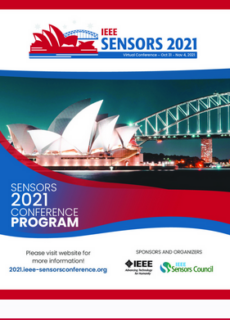Invited talk at IEEE Sensors 2021
Prof. Amft gave an invited talk at the IEEE Sensors 2021 conference, titled: From Digital Twins to Wearables and Back.
Conference page: https://2021.ieee-sensorsconference.org/presenter/oliver-amft
Abstract
The notion of digital twins is well-established for technical systems, in particular mechanical devices. Yet our understanding of the merits and use of human digital twins is still very limited. In this talk, I will give an overview on our efforts in designing and utilising wearable sensing technology and artificial intelligence (AI) methods with and against human and technical digital twins to realise medical applications.
Due to its current relevance, I will start by reporting from the German Corona Datenspende initiative and show how the by far largest study on exploiting wearable sensing device data helps to fight COVID-19 and create physiological population models, which – as a side product – could serve as basis for human digital twins.
Subsequently, the talk will highlight how wearable system design and AI algorithms can be selected and optimised in co-simulations with human digital human twins with examples from gait analysis, dietary monitoring, and others. But the reverse approach has potential too, i.e. to inform digital twins from body-worn device data. I will show how we add realism to human digital twin models to maximise system design insight and create advanced decision support systems, e.g. for healthy behaviour choice by obese patients.
In scaling the concept of human digital twins up, I will show how we recently created mass behaviour from individual agents, which was then applied to analyse human proximity, interaction, and SARS-CoV-2 virus spread under different interventions, including contact tracing, test-to-release, and quarantine. The modelling developed for the agent behaviour simulations has been inspired by the human digital twin idea and exploits the vast design space given by virtual worlds in which we expose the created individuals.

